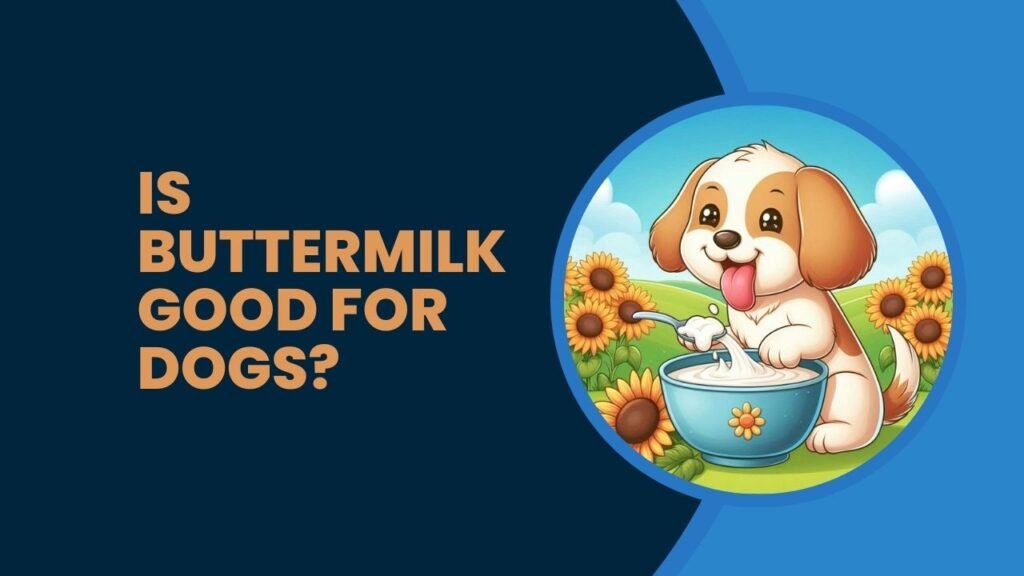Is Skippy Safe For Dogs? Skippy peanut butter is generally safe for dogs in small amounts, as long as it does not contain xylitol, which is toxic to dogs.
Peanut butter is one of those delightful treats that both humans and dogs can enjoy. Among the many peanut butter brands on the market, Skippy stands out as a popular choice due to its smooth texture and rich flavor.
However, when it comes to our furry friends, the question arises: is Skippy peanut butter safe for dogs? While it may seem harmless, there are important factors to consider when feeding peanut butter to dogs, including potential ingredients that could be harmful.
This article delves into the details of Skippy peanut butter, examines its ingredients, and provides pet owners with guidance on how to safely incorporate this treat into their dog’s diet.
Contents
- 1 What Is Skippy Peanut Butter?
- 2 Is Skippy Peanut Butter Safe for Dogs?
- 3 Benefits of Feeding Dogs Peanut Butter
- 4 Risks of Feeding Dogs Peanut Butter
- 5 How to Choose a Safe Peanut Butter for Dogs
- 6 What to Do If Your Dog Consumes Skippy with Xylitol
- 7 Final Verdict
- 8 FAQs
- 9 Conclusion: Is Skippy Safe For Dogs?
What Is Skippy Peanut Butter?
History and Overview
Skippy peanut butter has been a staple in American households since its introduction in 1932 by Joseph Rosefield.
Known for its creamy consistency and delicious taste, Skippy quickly became a favorite, providing a smooth spread that outmatched its competitors.
Today, Skippy offers various types of peanut butter, including creamy, chunky, natural, reduced-fat, and flavored varieties.
Its versatility and taste have made it a beloved choice among peanut butter enthusiasts of all ages. [Is Skippy Safe For Dogs?]
Ingredients in Skippy
The standard Skippy peanut butter is made from roasted peanuts, sugar, hydrogenated vegetable oils (to maintain freshness), and salt.
Some versions, such as “Skippy Natural,” are made with slightly fewer additives, while others, like “Reduced Fat” or “Honey Flavored,” contain additional ingredients like corn syrup solids and molasses.
Understanding these ingredients and their potential effects on dogs is crucial for responsible pet ownership.

Is Skippy Peanut Butter Safe for Dogs?
Understanding Dog Safety
Dogs have different dietary needs and digestive systems than humans, meaning certain foods that are safe for us may not be safe for them. Peanut butter, in general, is not toxic to dogs and can be a healthy treat when given in moderation.
However, not all peanut butter brands are created equal, and some contain ingredients that can pose health risks to dogs. [Is Skippy Safe For Dogs?]
It’s important for dog owners to be vigilant about what they are feeding their pets and ensure any treats are safe and healthy.
Xylitol Concerns
One of the biggest concerns when it comes to peanut butter and dogs is the presence of xylitol, a sugar substitute commonly found in sugar-free products.
Xylitol is extremely toxic to dogs and can cause a rapid release of insulin, leading to hypoglycemia (low blood sugar). [Is Skippy Safe For Dogs?]
Symptoms of xylitol poisoning in dogs include vomiting, weakness, lack of coordination, seizures, and even liver failure or death in severe cases.
The good news is that most Skippy peanut butter varieties do not contain xylitol, making them generally safer for dogs. However, it’s always important to check the label, as formulations can change.
Skippy Varieties Without Xylitol
For pet owners looking to share peanut butter with their dogs, the safest options are Skippy Creamy or Skippy Natural varieties, which do not contain xylitol or any artificial sweeteners. These versions are made from roasted peanuts, a bit of sugar, salt, and oil.
However, be cautious with flavors like “Reduced Fat” or “Honey Flavored,” which may contain additional sugars or other ingredients that aren’t ideal for dogs. Always read the label carefully to confirm the ingredients.
Moderation is Key
Even if a particular variety of Skippy peanut butter is free from xylitol and other harmful ingredients, it should still be given to dogs in moderation.
Peanut butter is high in calories and fat, which, while beneficial in small amounts, can lead to obesity and other health problems if overfed.
A small spoonful given occasionally as a treat or a way to administer medication is usually safe, but it should not become a daily part of your dog’s diet.
Benefits of Feeding Dogs Peanut Butter
Peanut butter, when given in moderation, can provide several benefits for dogs:
High Protein Content
Peanut butter is an excellent source of protein, which is essential for a dog’s muscle growth and repair. [Is Skippy Safe For Dogs?]
Protein helps maintain a dog’s overall health and supports the immune system, making it a beneficial addition to their diet when consumed occasionally.
Healthy Fats
The fats in peanut butter, particularly monounsaturated and polyunsaturated fats, are considered healthy fats. These fats can help maintain a shiny coat and healthy skin in dogs.
However, because peanut butter is calorie-dense, it’s important to monitor the amount given to avoid excessive fat intake.
Interactive Treat
Peanut butter is often used as an interactive treat for dogs. It can be spread inside toys like Kong toys or placed on lick mats to keep dogs entertained and mentally stimulated.
This is particularly useful for dogs that experience separation anxiety or need extra mental stimulation.
A Way to Administer Medication
For dogs who are picky about taking medication, peanut butter can be a clever way to hide pills or tablets.
The strong flavor and sticky texture can mask the taste of the medication, making it easier for dogs to consume. [Is Skippy Safe For Dogs?]
Risks of Feeding Dogs Peanut Butter
While peanut butter can be beneficial, there are also several risks associated with feeding it to dogs, especially in large quantities or if the wrong type is chosen.
Potential Allergies
Just like humans, dogs can have allergic reactions to peanuts. Symptoms of a peanut allergy in dogs may include itching, swelling, hives, vomiting, and diarrhea.
If you notice any signs of an allergic reaction after giving your dog peanut butter, it’s important to stop immediately and consult your veterinarian.
High-Calorie Content
Peanut butter is very calorie-dense, which means that even a small amount can add a significant number of calories to a dog’s diet. [Is Skippy Safe For Dogs?]
Regular overfeeding of peanut butter can lead to weight gain and obesity, which can have long-term health implications such as joint problems, diabetes, and heart disease.
Additives and Preservatives
Many commercial peanut butter brands, including some varieties of Skippy, contain added sugars, salt, and preservatives.
These additives are not ideal for dogs, as they can contribute to obesity, hypertension, and other health issues.
To minimize these risks, choose a natural peanut butter that contains only peanuts and, if necessary, a small amount of salt.
How to Choose a Safe Peanut Butter for Dogs
Reading Labels
Reading labels is critical when choosing peanut butter for dogs. Make sure the peanut butter you select does not contain xylitol, added sugars, artificial sweeteners, or other harmful additives.
Look for peanut butter with a short ingredient list—ideally, just peanuts and perhaps a small amount of salt. [Is Skippy Safe For Dogs?]
Organic and Natural Options
Opting for organic or natural peanut butter varieties can further ensure the safety of your dog. These products are less likely to contain harmful additives or preservatives and often provide a purer form of peanut butter.
However, natural peanut butter can sometimes separate, with the oil rising to the top. Be sure to stir it well before giving it to your dog to ensure an even consistency. [Is Skippy Safe For Dogs?]
Portion Control
When feeding peanut butter to your dog, portion control is key. A small spoonful once in a while is sufficient and can prevent overconsumption of calories and fats. Use peanut butter as an occasional treat rather than a staple in their diet.
What to Do If Your Dog Consumes Skippy with Xylitol
Immediate Steps
If you suspect that your dog has ingested peanut butter containing xylitol, it’s crucial to act quickly. Remove any remaining peanut butter and immediately check the ingredient label for confirmation of xylitol.
Symptoms of Xylitol Poisoning
Common symptoms of xylitol poisoning in dogs include vomiting, lethargy, loss of coordination, seizures, and in severe cases, coma or death. These symptoms can occur within 10 to 60 minutes of ingestion, so time is of the essence.
Seeking Veterinary Help
Contact your veterinarian or an emergency animal clinic immediately if your dog has consumed peanut butter containing xylitol.
Quick intervention can mean the difference between life and death, and your vet may induce vomiting or administer activated charcoal to prevent further absorption of the toxin.
Final Verdict
Skippy peanut butter can be a safe and delicious treat for dogs, provided it does not contain harmful ingredients like xylitol or excessive sugars and salts.
Always check the label carefully, opt for varieties with minimal ingredients, and feed in moderation to keep your dog happy and healthy.
When in doubt, consult your veterinarian to ensure the safety of any new food or treat for your pet. [Is Skippy Safe For Dogs?]
See Also: Is Bacon Grease Good For Dogs?
FAQs
Can dogs eat any type of Skippy peanut butter?
Dogs can eat Skippy peanut butter that does not contain xylitol or other harmful additives. Always check the label.
How much peanut butter can I give my dog?
A small spoonful as an occasional treat is generally safe, but avoid overfeeding due to its high-calorie content.
What are signs of peanut butter allergies in dogs?
Symptoms include itching, swelling, vomiting, diarrhea, and breathing difficulties. Consult a vet if these occur.
Are there other peanut butter brands safer for dogs?
Yes, natural and organic peanut butter with minimal ingredients is safer. [Is Skippy Safe For Dogs?]
Is xylitol the only harmful ingredient to watch out for?
While xylitol is the most dangerous, added sugars, salts, and preservatives can also be harmful in large amounts.
Conclusion: Is Skippy Safe For Dogs?
While Skippy peanut butter can be a tasty and enjoyable treat for dogs, it’s essential to select the right variety and ensure it is free from harmful ingredients like xylitol.
Moderation is crucial, as overfeeding can lead to health issues. [Is Skippy Safe For Dogs?]
By choosing a safe peanut butter and using it responsibly, pet owners can share the joy of this beloved treat with their furry friends without compromising their health.

Derrick Wilcox is a certified canine behaviorist with over 12 years of experience at Happy Paws Animal Clinic and Pawsitive Training Center, helping pet owners ensure safer, healthier, and happier lives for their dogs.



